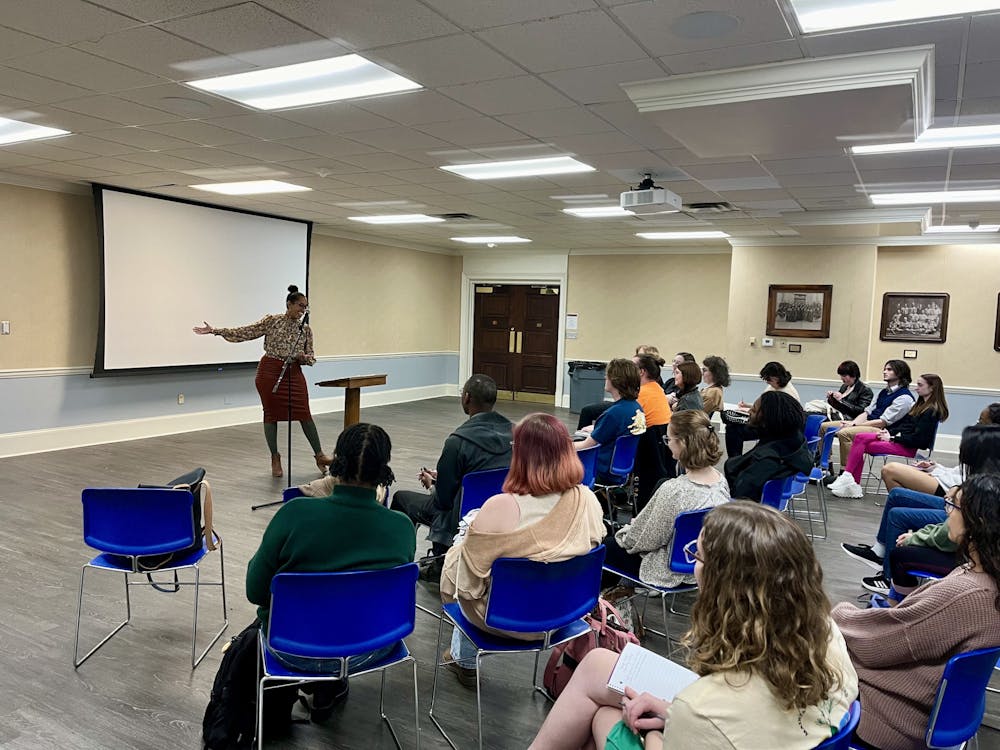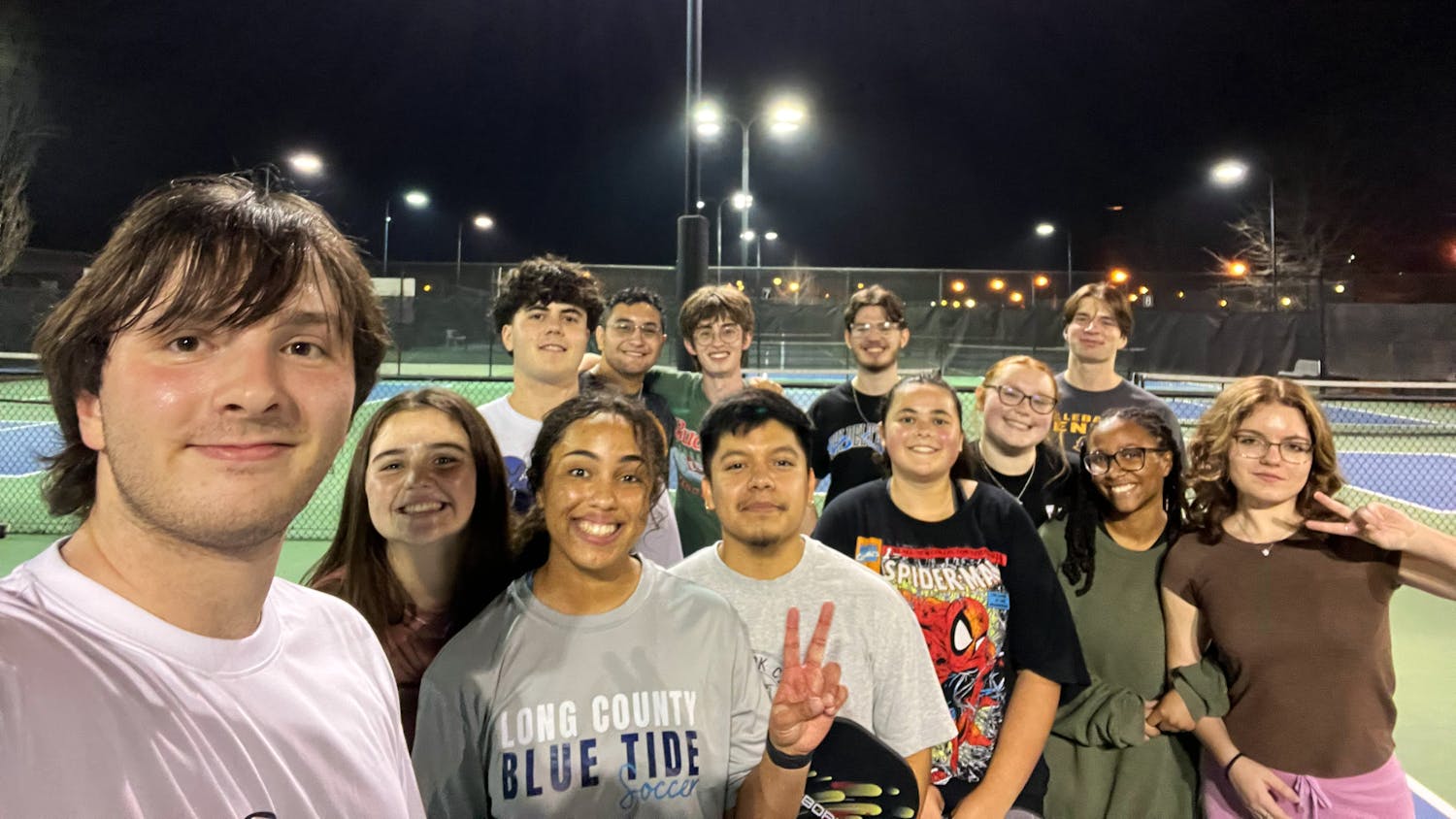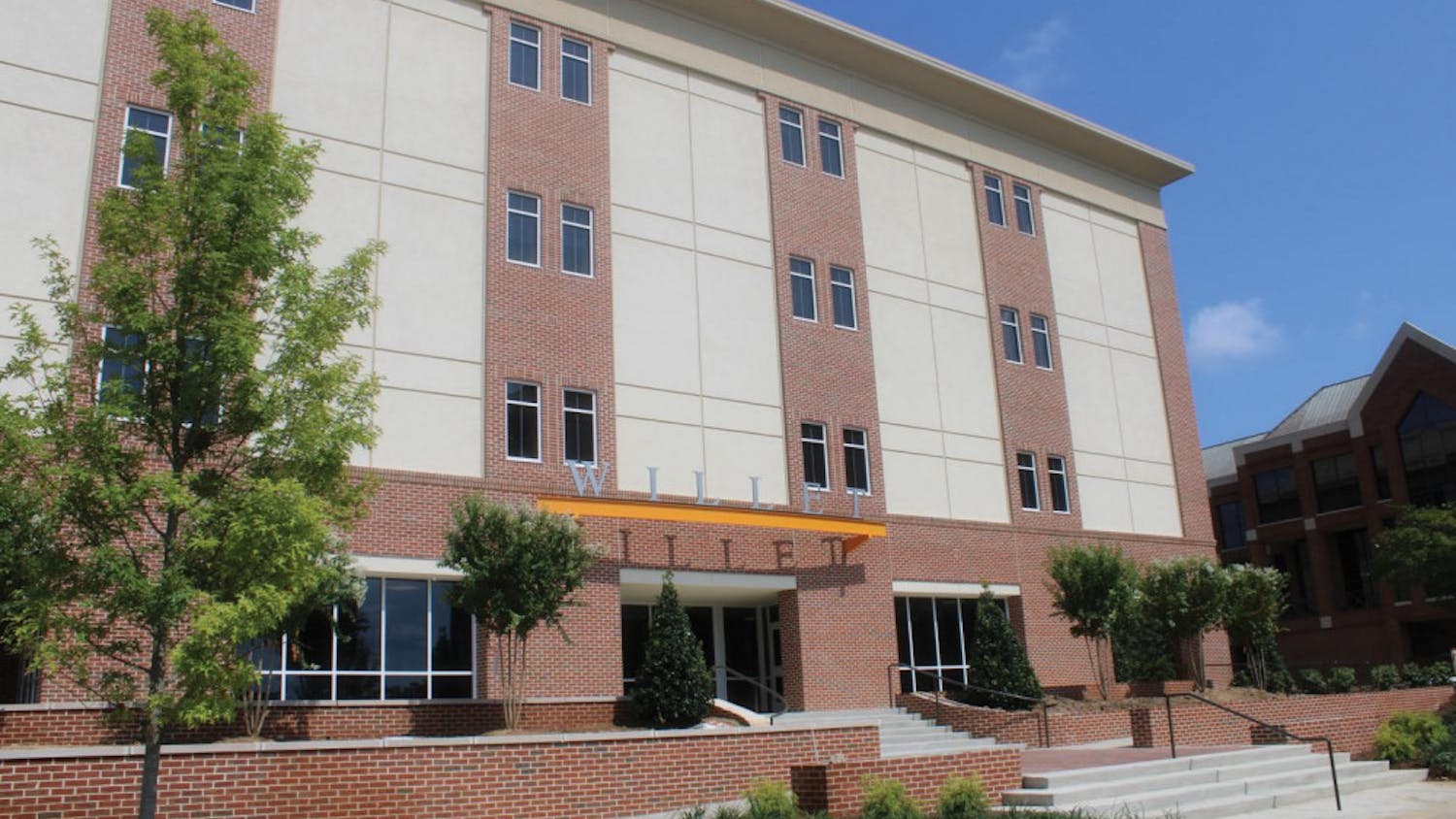For Tiphanie Yanique, her identity as a writer isn’t only determined by the time she spends on her craft, it’s also about the way she interacts with the world and her own community.
Yanique is an award-winning poet, novelist, essayist and activist from the U.S. Virgin Islands. She was selected to be Mercer’s 2024 Ferrol A. Sams Jr. Distinguished Chair in English. This semester, she is teaching an advanced poetry workshop titled ECO/ARCHIVE: Writing Poetry of the Natural Environment and the Material World.
An Audio rendition of this story by Megan Jackson.
TranscriptChelsea Rathburn, associate professor of English and the new director of the Sams program, is a long-time admirer of Yanique's poetry and fiction.
"I knew her reputation as a gifted teacher," Rathburn said. "When she proposed a class on writing from nature and the archive, I knew that our students would develop as writers in ways they couldn't imagine."
Yanique normally teaches creative writing at Emory University but is teaching the workshop class at Mercer during her sabbatical. She’s working on a new poetry book about archives and the environment, so it was obvious to her that this would also be the basis of her class.
For her own research, she’s looking at archival material that answers her questions about what it means to belong to a nation, culture, ethnic group and gender.
“In my own book of poems, I'm exploring archives that have to do with the Virgin Islands, the Caribbean, and this incredible project that we call the United States,” Yanique said.
The poetry class is structured like a masters-level workshop, where students meet once a week on Wednesday mornings for two and half hours to discuss assigned readings and workshop their own work with one another.
“I'm very intimate and vulnerable, and I'm very political in my work,” Yanique said. “To me, spending time in a library and archive is the radical research that a lot of professors do that we don't often think about as creative practice.”
She said it’s rare that professors get to teach more experiential classes outside their area of expertise.
“I am also actively learning alongside my Mercer students, which is really exciting for me, and, I hope, for them, because they get to see what a poet in the world is up to and how that works,” Yanique said.
The students are visiting the public archive at Washington Memorial Library in Macon and looking at how natural disasters have affected historic buildings, combining the environment and the archive. Later, they will also visit the Ocmulgee Mounds.
Ella Bissonnette ‘25, a double major in creative writing and women's and gender studies, loves the supportive poetry environment and close community. The class is also challenging her to write in new directions.
"I've learned to take risks, because in the past I've been very safe in my writing. I don't want to mess my poems up too much once they're already written, and I'm very particular about them, but I have been really trying to smash it up and try new ideas," Bissonette said.
Maret McWhorter ‘26, a communication studies and creative writing major, loves how focused and intentional the workshops are, and how the environment Yanique is cultivating encourages learning.
"She has a very firm presence in class, and everything she said so far about poetry has really opened my eyes about the perspective I'm writing from, the kind of tradition I'm writing from," McWhorter said.
Yanique’s teaching style and refusal to be limited by any specific genres of writing are a testament to the holistic approach she takes to her craft. Her undergraduate teacher, the American Writer Andre Dubus III, gave her one of her favorite pieces of advice on writing and identity.
“One of the things he said to me early on was, 'you're always a writer.' You don't have to turn your writer self off to do your job, or to do your other relationships,” She remembered him saying. “To always sort of think about yourself as a creative person who's invested in language, even in the mundanity of life, that was really helpful to me.”
In return, she would advise young writers today to read broadly and outside their comfort zones.
“We want a broad audience for our own writing, and the only way to do that is to have so many different kinds of beautiful, achieved literary voices in our heads so that they can amalgamate and help us create new and interesting voices,” Yanique said.
Yanique credits her community growing up that supported her and a myriad of the experiences of her early life with her identity as a writer.
She was raised in a poorer area of the Virgin Islands, the part she said tourists would never go to. Despite her neighborhood, Yanique said she was privileged to have grown up in a house filled with books. Her mother and grandmother were librarians, so she was encouraged to be "bookish" from a young age.
“I had an incredible amount of community support and love and literary intelligence around me,” she said. “I think that's probably the most important part of [my] story.”
Even though Yanique didn’t have a "room of her own" like Virginia Woolf did, her house was never silent. She was surrounded by a multi-generational family that encouraged her pursuits of language. In turn, she wants to foster community in all aspects of her life.
“The life of an artist is an incredibly privileged thing,” Yanique reflected. “As a writer of color, I want more people like me. I'm not interested in being an exception.”
Yanique will deliver a craft talk on fiction on March 27, at 4 p.m. in room one of the Connell Student Center. She will also host a special poetry reading featuring students from her advanced poetry workshop and a distinguished guest on April 24.
Eliza Moore ‘24 is an English and Journalism student at Mercer University. She is now in her second year working as The Cluster’s News Editor after a semester abroad. She is currently producing work for Macon Magazine and Georgia Public Broadcasting in addition to her work with The Cluster. She loves breakfasts, the ocean, and all things related to writing.





